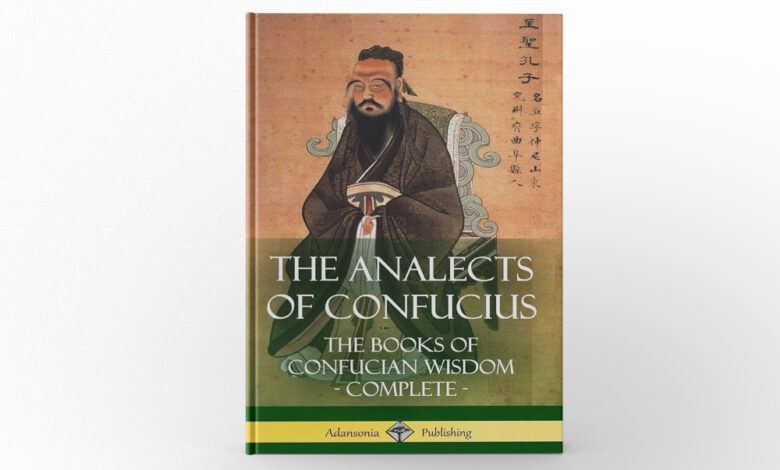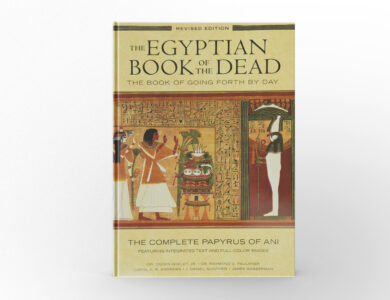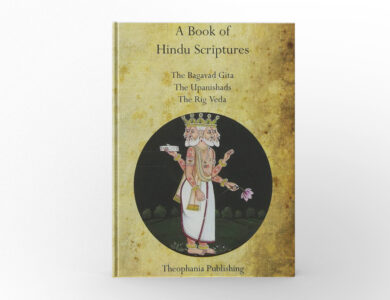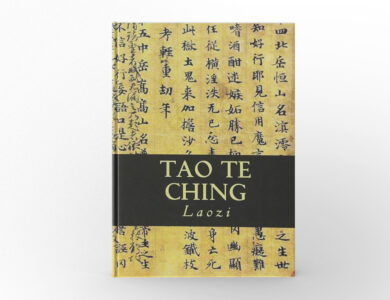The Confucian Analects by Confucius
Timeless Wisdom: Exploring “The Confucian Analects” by Confucius

“The Confucian Analects” is a collection of sayings and ideas attributed to the Chinese philosopher Confucius and his disciples. This ancient text, also known as “Lunyu,” has been a cornerstone of Confucian philosophy and has profoundly influenced Chinese culture and thought for over two millennia. In this article, we will delve into the key themes, insights, and contributions of this timeless work.
Author’s Background
Confucius, born Kong Qiu in 551 BCE in the state of Lu (modern-day Shandong province), was a Chinese teacher, editor, politician, and philosopher. His teachings focused on morality, social relationships, justice, and sincerity. Confucius believed in the importance of education and self-cultivation, and his ideas were later compiled by his disciples into “The Confucian Analects.” The text captures the essence of Confucius’s thoughts and provides a comprehensive guide to his philosophy.
In-Depth Summary
“The Confucian Analects” is divided into 20 books, each containing a series of aphorisms, dialogues, and anecdotes. These books cover a wide range of topics, including ethics, politics, education, and personal conduct. The text is not organized in a linear narrative but rather as a collection of teachings that reflect the core principles of Confucian thought.
- Book 1: The first book introduces the fundamental concepts of Confucianism, such as the importance of learning, the role of the gentleman (junzi), and the value of filial piety. Confucius emphasizes that a true gentleman is one who cultivates virtue and seeks to improve himself continually.
- Book 2: This book delves into the qualities of a good ruler and the principles of governance. Confucius advocates for benevolent leadership and stresses that a ruler should lead by example, embodying the virtues of righteousness and integrity.
- Book 3: The third book focuses on the significance of rituals and ceremonies. Confucius believes that rituals are essential for maintaining social harmony and order. He argues that rituals should be performed with sincerity and respect, as they reflect the moral values of society.
- Book 4: This book explores the concept of ren (benevolence or humaneness), which is central to Confucian ethics. Confucius teaches that ren is the highest virtue and should guide all human interactions. He emphasizes the importance of empathy, kindness, and compassion in building harmonious relationships.
- Book 5: The fifth book contains various anecdotes and dialogues that illustrate the application of Confucian principles in everyday life. Confucius discusses the qualities of a good friend, the importance of self-reflection, and the value of humility.
- Book 6: This book addresses the role of education and the process of self-cultivation. Confucius asserts that learning is a lifelong pursuit and that one should constantly strive to acquire knowledge and wisdom. He also highlights the importance of critical thinking and the willingness to learn from others.
- Book 7: The seventh book provides insights into Confucius’s personal life and character. It includes reflections on his own experiences, his relationships with his disciples, and his thoughts on various philosophical issues.
- Book 8: This book discusses the qualities of a virtuous leader and the principles of effective governance. Confucius emphasizes that a ruler should prioritize the welfare of the people and govern with justice and compassion.
- Book 9: The ninth book explores the concept of li (ritual propriety) and its role in maintaining social order. Confucius argues that rituals are not merely formalities but are essential for cultivating moral character and fostering respect for tradition.
- Book 10: This book contains various sayings and anecdotes that highlight the importance of moral integrity and ethical conduct. Confucius teaches that one should always act with honesty, sincerity, and a sense of duty.
- Books 11-20: The remaining books continue to elaborate on the themes of ethics, governance, education, and personal conduct. They include additional dialogues, reflections, and anecdotes that provide further insights into Confucian philosophy.
Themes and Insights
One of the central themes of “The Confucian Analects” is the concept of ren, or benevolence. Confucius teaches that ren is the highest virtue and should guide all human interactions. This theme underscores the importance of empathy, kindness, and compassion in building harmonious relationships.
Another key theme is the importance of education and self-cultivation. Confucius believes that learning is a lifelong pursuit and that one should constantly strive to acquire knowledge and wisdom. This theme emphasizes the value of critical thinking, self-reflection, and the willingness to learn from others.
The text also highlights the significance of rituals and ceremonies. Confucius argues that rituals are essential for maintaining social harmony and order. This theme reflects the Confucian belief in the importance of tradition and the role of rituals in cultivating moral character.
Recommendation
“The Confucian Analects” is a must-read for anyone interested in Chinese philosophy, ethics, and the pursuit of wisdom. The text offers profound insights into the nature of virtue, the principles of good governance, and the importance of education. Whether you are a scholar, a student, or simply curious about Confucian thought, the Analects provide a rich and enlightening exploration of timeless truths.
Impact and Legacy
Since its compilation, “The Confucian Analects” has had a profound impact on Chinese culture and thought. The text has shaped the moral and ethical values of Chinese society for over two millennia and continues to influence contemporary Chinese philosophy and education.
The Analects have also inspired numerous commentaries and interpretations by scholars and philosophers throughout history. Figures such as Zhu Xi and Wang Yangming have provided valuable insights into the text’s teachings, helping to preserve and disseminate Confucian wisdom.
Conclusion
In conclusion, “The Confucian Analects” is a remarkable and enduring testament to the intellectual and moral achievements of Confucius and his disciples. This sacred text offers a comprehensive guide to understanding the principles of Confucian philosophy and provides valuable insights into the nature of virtue, governance, and education. Whether you are exploring the teachings of Confucius for the first time or seeking to deepen your understanding of his philosophy, the Analects provide a rich and rewarding journey into the heart of Chinese wisdom.
Personal Reflections
Reading “The Confucian Analects” is not just an intellectual pursuit but a deeply spiritual experience. The sayings and teachings resonate with timeless wisdom and offer a glimpse into the profound insights of Confucius and his disciples. This book reminds us that the quest for virtue and the desire to understand the mysteries of existence are universal themes that transcend time and culture.





